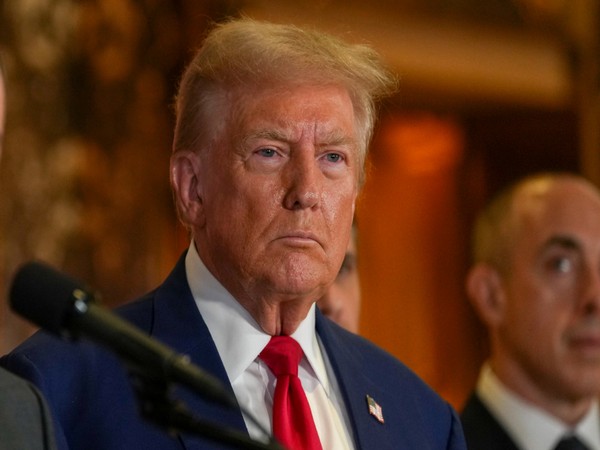Trump 'ambiguous strategy', says will decide Iran issue within next 2 weeks
Jun 20, 2025

New York [US], June 20: US President Donald Trump's statements about his plans for Iran and the ongoing war between Israel and Iran are keeping the world guessing and waiting.
"You don't know if I'm going to do it. I might, I might not. Nobody knows what I'm going to do," President Trump said when asked about his plans for Iran during a White House ceremony on June 18. "Nothing's over until it's over. War is very complicated. A lot of bad things can happen, a lot of different paths can take," he said.
Speaking to CNN reporters in the Oval Office, President Trump said he had not made a final decision because of pressure from Israel and opposition from MAGA voters. "I have ideas, but I have not made a final decision. I want to make a decision at the last minute, you know, because things can change."
As he said, no one knows what the White House occupant will do, something some analysts call Trump's strategic ambiguity. But CNN also made a notable comment, perhaps he himself is not sure.
According to CNN, it is typical of Mr. Trump, who seems to want to keep both friends and enemies in a state of constant judgment and uncertainty. Mr. Trump believes that unpredictability and instability, factors that most presidents try to avoid in crisis situations, give him a strategic advantage.
It is this ambiguity that allows Mr. Trump to prolong his decision-making and avoid being bound by irreversible actions. His supporters call this a strategic skill, but there is not enough evidence to show that this "strategy" of the White House owner can be successfully applied in geopolitical confrontations or in maintaining global peace.
Meanwhile, Democratic Senator Adam Schiff expressed concern on The Situation Room : "It's unclear what he's thinking. He's hesitant about Iran, which I can understand. But we don't see any clear signals that he's leaning toward negotiations or attacking Iran."
The conflicting intelligence assessments by the US and Israel on Iran's nuclear progress have added to the confusion. Senator Mark Warner, a member of the "Gang of Eight" with access to classified information, also admitted: "I don't know what the administration's plan or foreign policy is with Iran." Despite his ambiguity, Warner acknowledged that this was a difficult decision for the president.
Obviously, the possibility of the US participating in an attack on Iran is a sensitive action because of many possible consequences. Could Iran retaliate against US bases and forces in the Middle East, and could there be a wave of instability if the Tehran government collapses? So the issue of benefits will be very important to the Trump administration's move.
In addition, the Trump administration's preparedness for this crisis is also being questioned. According to news published in the US media in recent days, the third US aircraft carrier group is heading to the Middle East. At the White House, President Trump is said to be meeting with his national security advisers every day.
CNN reported that President Trump is considering striking key targets in Iran's nuclear program without getting drawn into a full-scale war. Trump wants to avoid the endless wars in Iraq and Afghanistan that he used to appeal to conflict-skeptic voters during his presidential campaign.
Senator Elissa Slotkin, a former CIA officer who served in Baghdad, Iraq, directly asked Defense Secretary Pete Hegseth during the June 18 hearing: "Do you have a plan for the 'after'? Force protection measures, use of ground troops, cost assessment?" This Democratic congressman also recalled that he had witnessed mistakes in Iraq and Afghanistan.
"We have plans for everything, senator," Hegseth responded, but like President Trump, he did not provide any details.
Source: Thanh Nien Newspaper









